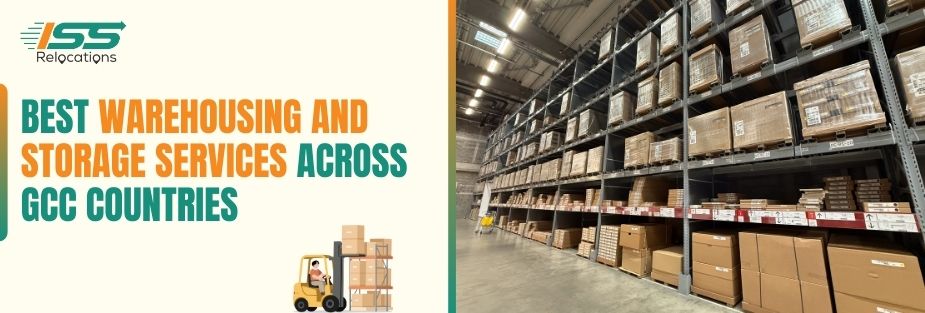
Cost of Living in Denmark form UAE – All You Need to Know in 2024
It is essential you should be thinking about when you decide to move to Denmark. Knowing the economic ramifications of everyday life in Denmark makes all the difference for efficient budgeting, whether you are an immigrant or a student from another country. The blog post that follows discusses several aspects of Danish living expenses, such as transportation, food options, and healthcare services. Understanding these issues allows individuals to make more educated decisions and facilitates their adjustment to this Scandinavian country. Let’s look at the specifics of the cost of living in Denmark form UAE to ensure you have all of the information you need to flourish in this dynamic and active country.
Relocate With Confidence!
Position your service as a trusted partner for their move
Factors That Implement Cost of Living in Denmark form UAE
1. Housing Costs
Living in Denmark, especially within major cities such as Copenhagen, can be prohibitively expensive due to the high cost of real estate. Housing expenses make up a large component of the total cost of living in Denmark. Major cities, such as Copenhagen, continue to have some of the most expensive general living expenses in Europe.
For example, the monthly rent for a one-bedroom apartment in the city center usually runs between DKK 8,000 and DKK 15,000.
Outside of the city center, rental prices are slightly lower, ranging from DKK 6,000 to DKK 11,000 monthly.
Owning property in Denmark is also prohibitively costly, with prices varying depending on region and property type. The cost of housing, whether rented or purchased, could be critical.
2. Transportation Expenses
Traveling by bus or train in Denmark proves to be practical and economical. Denmark has outstanding transportation infrastructure, including buses, trains, and metros, which makes it easy for people to travel. Monthly public transit passes range from DKK 300 to DKK 750, depending on coverage, geographic region, and mode of transportation. On the other each owning an automobile incurs additional costs such as insurance, fuel, parking fees, and vehicle upkeep.
3. Food and Grocery Prices
Groceries in Denmark are costly in contrast with its neighboring countries. Weekly buying things prices for a single individual might range between DKK 600 and DKK 1,000, depending on their food alternatives and buying habits. Eating out at dining establishments or coffee shops is similarly expensive to purchase, with meal prices ranging between DKK 100 to DKK 200 per person for a midrange supper.
Call Our Experts Today
4. Utilities and Bills
Electricity, which comprises power, heating, and water, is an additional cost worth thinking about when living in Denmark. Prepare to spend between DKK 1,000 and DKK 1,500 per month on utilities in a one-bedroom flat. Internet and mobile phone packages are also additional costs, with prices fluctuating depending upon the amount of data used and providers.
5. Healthcare Costs
Denmark has an encompassing healthcare system supported by assessment aimed at providing those who need complete healthcare services. While fundamental medical operations are free or subsidized by the government, some treatments and prescribed medications might involve out-of-pocket costs or, in addition, health insurance. When calculating the cost of living in Denmark, it needs to be considered to factor in future healthcare costs.
6. Education Expenses
EU/EEA citizens and Swiss nationals can attend public higher learning institutions in Denmark without paying the cost of tuition. Tuition fees for international learners can range between DKK 45,000 to DKK 120,000 per year, depending on the educational institution and degree. Additional charges exist for educational materials, instructional resources, and living expenses.
7. Entertainment and Leisure
Recreation and leisure in Denmark are too expensive. Cinema tickets, fitness center memberships, and artistic performances can often cost between DKK 50 and DKK 200 per activity. However, Denmark’s spectacular nature and abundance of parks provide innumerable free recreational activities.
8. Dining Out
Dining out at restaurants or cafés in Denmark can be inexpensive. Meal expenditures often range between DKK 100 and DKK 200, depending on the person dining, the establishment, and the cuisine.
9. Clothing and Personal Care
Denmark has more expensive rates for clothing and personal care items than other countries of the world. Set aside additional money for clothing and accessories, toilet amenities, and other personal care necessities.
10. Travel and Leisure
Discovering Denmark’s fantastic scenery and the neighboring nations may necessitate a focus on travel expenses. When selecting leisure activities, keep accommodation, transportation, and sightseeing expenses in consideration.
11. Taxes
Denmark’s taxation structure is progressive, which means higher taxes on income and goods. Prepare to pay income taxes, value-added tax (VAT), and other taxes that influence your total living expenses.
12. Savings and Investments
While the cost of living in Denmark may be bigger, there are opportunities to save and invest. Think about setting aside funds for savings accounts, retirement planning, and investment portfolios for safeguarding your financial future.
13. Social Life
Dining at restaurants with friends, witnessing events, and getting involved in leisure activities may all cost money in Denmark. Budget thoughtfully in order to preserve a full social life while also managing your financial affairs prudently.
14. Budgeting and Financial Planning
When it comes to regulating the cost of living in Denmark, it is necessary to create and put into effect a strategy. Track your expenses, prioritize their final days, and adjust your spending plan as needed in order to ensure financial stability and security.
15. Quality of Life
While the cost of living in Denmark form UAE is more expensive, the country guarantees a wonderful standard of living, in addition to a passionate educational in nature, medical treatment, and social assistance systems. When considering the cost of living in Denmark, consider the overall incentives and opportunities.
16. Miscellaneous Expenses
Miscellaneous expenditures include garments, personal health goods, and unexpected charges. Setting up an extra DKK 1,000 to DKK 2,000 each month for different costs is a great strategy to handle unexpected purchases and emergencies.
Conclusion
In a nutshell, analyzing the cost of living in Denmark is critical for anyone pondering a relocation to the Scandinavian country in 2024. While living costs are likely to be high, especially in cities like Copenhagen, Denmark’s high quality of life, strong government services, and progressive social policies make it a worthwhile option, particularly for community members and international students.
Individuals in Denmark can effectively budget and prepare for their financial needs by taking into account factors such as housing costs, transportation expenses, food prices, healthcare costs, school fees, and miscellaneous expenses.
While some aspects of the cost of living may need to be adjusted, the positive aspects of living in Denmark, such as access to universal healthcare, free education for EU/EEA citizens, and a strong social safety net, much outweigh the costs for many residents.
Plan Stress-free Move with Top Moving Company in UAE - ISS Relocations

Frequently Asked Questions
What salary do you need to live comfortably in Denmark form UAE?
To live comfortably in Denmark form UAE, a single person needs around $2,500 to $3,500 per month, while a family requires $4,500 or more. With ISS Relocations, you can manage your move efficiently and find affordable housing, ensuring a smooth transition.
Is it expensive to live in Denmark form UAE?
Denmark has a high cost of living, especially in cities like Copenhagen. Rent, groceries, and dining are costly, but healthcare and education are top-notch. ISS Relocations offers cost-effective moving solutions to help you settle in without unnecessary expenses.
How much is rent in Denmark?
Rent varies by city, with Copenhagen being the most expensive. A one-bedroom apartment in the city center costs around $1,500 per month, while in smaller cities, it’s about $900. ISS Relocations assists in finding affordable accommodations for a seamless relocation.
What is the cost of living and salary in Denmark?
The cost of living depends on lifestyle and location. Salaries range from $4,000 to $7,000 per month for professionals, with high taxes but strong social benefits. ISS Relocations provides relocation assistance to help you adjust to Denmark’s financial landscape.
What is the cheapest city to live in Denmark?
Odense, Aalborg, and Esbjerg are among the most affordable cities in Denmark. They offer lower rent and living costs compared to Copenhagen. ISS Relocations can guide you in choosing the best city based on your budget and lifestyle preferences.
Is moving to Denmark worth it from form UAE?
Denmark offers a high quality of life, excellent healthcare, and work-life balance, but it comes with high taxes and living costs. ISS Relocations ensures a hassle-free move, assisting with visas, housing, and job market insights to make your relocation smooth.
Is healthcare free in Denmark?
Denmark provides universal healthcare funded through taxes, making basic healthcare services free for residents. However, private healthcare and dental treatments may have additional costs. ISS Relocations helps expats navigate the healthcare system upon arrival.
Moving Company - Recent Blog
Stay informed and prepared for your next move with our latest blogs on moving services in the UAE. From expert packing tips to international relocation guides, ISS Relocations brings you up-to-date insights to make your moving experience smoother, safer, and stress-free.










